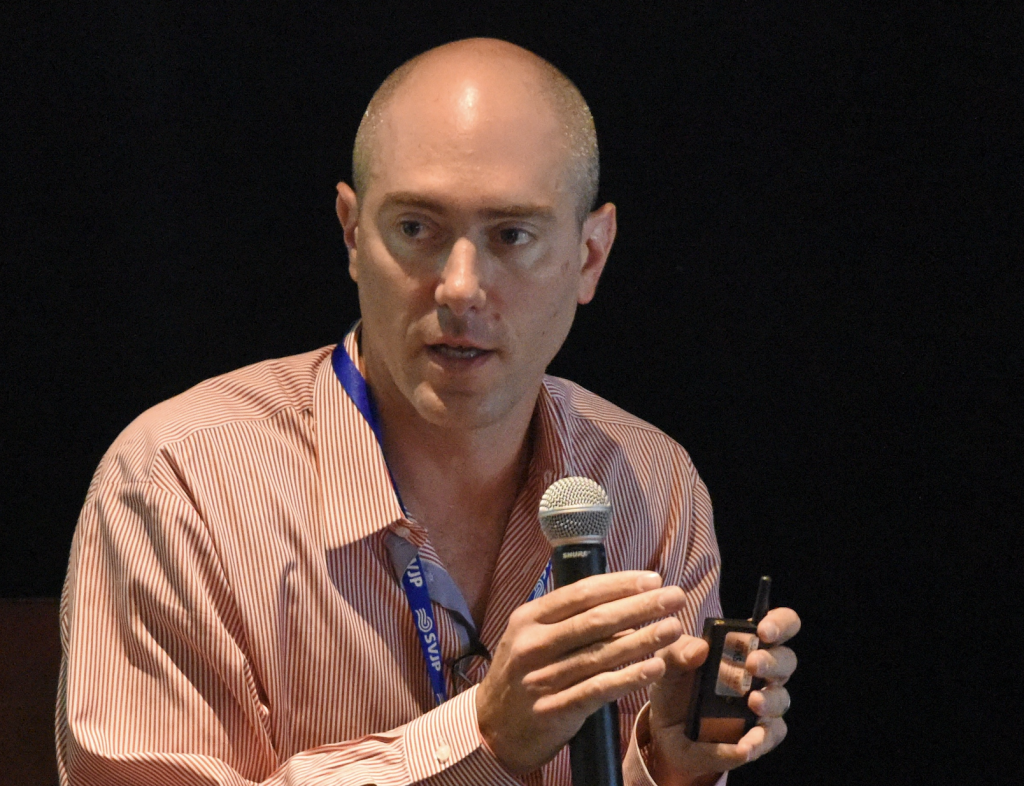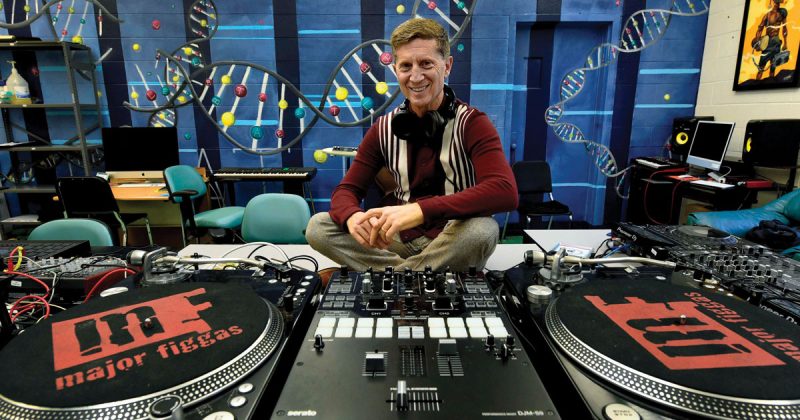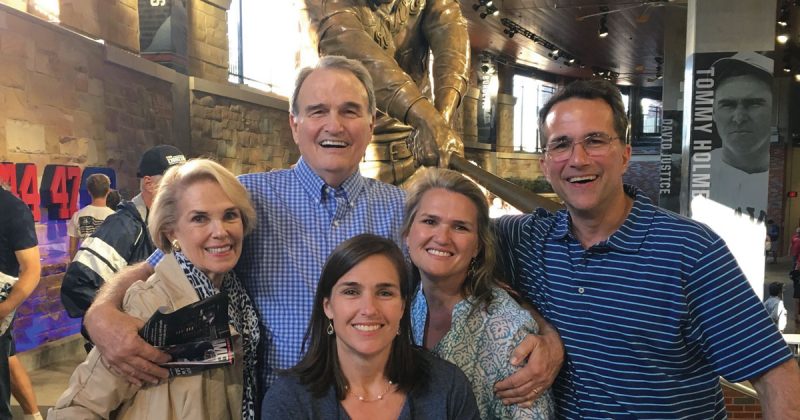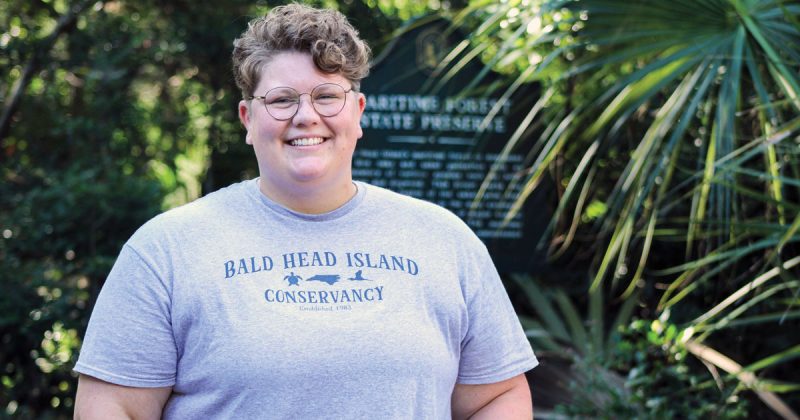
David Rosenberg ’94, shown speaking at a technology conference, has led numerous businesses that rethink traditional agriculture and food production. (courtesy of David Rosenberg)
David Rosenberg credits his Carolina education for honing the analytical and people skills that have contributed to his success in diverse industries.
Thirty years after graduating from Carolina, David Rosenberg has launched or led an array of companies — in industries as varied as nanotechnology in concrete, vertical farming, insect agriculture and animal-free egg protein.
The threads that weave them together are their focus on sustainability and his entrepreneurial eye for spotting what he calls “supply chains ripe for disruption.”
Take his first company, Hycrete, which he launched in 2002. The company used a hydrophobic material that he put into concrete as an admixture to make all of the concrete hydrophobic. He then created a system that made concrete construction water- and corrosion-resistant. The company became a world leader in waterproofing concrete construction.
Rosenberg ’94 sold Hycrete in 2012 and was ready for his next entrepreneurial enterprise. Enter AeroFarms, a revolutionary indoor vertical farming company he co-founded. He innovated and integrated technologies to grow leafy green vegetables and microgreens. The growing method is more efficient than traditional agriculture and uses 95% less water and no pesticides.
Rosenberg then spun Inspired Growing out of AeroFarms. The new company takes that indoor growing technology to schools and classrooms. Students grow salad greens and veggies indoors on a setup about the size of a pool table to eat healthier while also learning the science behind the care and feeding of plants.
He is also CEO of Aspire, a pioneer in the insect agriculture industry. Rosenberg has been helping to build the company for the last seven years as a board member. The company uses advanced technology to grow crickets — which are high in protein and fiber — as a pet food additive. In 2023, Aspire opened what is believed to be the world’s largest cricket processing factory. The 150,000-square-foot facility in Ontario is highly automated and robotized.
He’s also on the board of Every, a company that makes animal-free “eggs.” The company genetically sequenced an egg and uses precision fermentation to produce egg whites. And he is a partner in a $400 million venture fund, TAU Capital, that invests in deep tech.
Asked to explain the leap from concrete to microgreens to insects, he said, “I had learned from working at Hycrete how much water goes toward agriculture. As I researched the issue, I realized that to solve water, we need to solve agriculture.”
More research led him to discover efficiencies in growing plants indoors and how operations could be scaled up using technology. The vertical farming lessons — robotic arms, computer-controlled environments — transferred to growing crickets on a commercial scale.
“As an entrepreneur, it’s often easier to figure out what is a pain for the industry and how to fix it,” Rosenberg said.
As a UNC student, Rosenberg majored in political science, supplemented by a healthy dose of philosophy courses. He credits these classes for honing his analytical skills, which have proven valuable to him as a serial entrepreneur.
“I was very interested in courses that explored the societal construct — what is the ideal way in which people interact?” he said. “I apply a lot of my thinking and problem-solving foundationally. … We have to be not just business leaders, but societal leaders, to create an atmosphere where people can express themselves in a comfortable way.”
After graduating from Carolina and a brief stint at an investment firm, Rosenberg eventually went to work for an incubator that developed startups in Israel. This experience taught Rosenberg two key essentials in “disruptive entrepreneurship”: challenging assumptions and encouraging healthy debate.
“With a startup, you need to make many decisions with imperfect information; we owe it to ourselves to debate assumptions to get to the truth,” he said.
Along the way he earned an MBA at Columbia University.
At Carolina, Rosenberg has shared his experience managing startups by speaking to classes in the College’s Shuford Program in Entrepreneurship.
“I think entrepreneurship is such a valuable skill,” said Rosenberg. “The world needs people who don’t just accept the status quo.”
By Geneva Collins
Published in the Spring 2024 issue | Alumni Up Close, Tar Heels Up Close
Read More

Celebrating 10 years of hip-hop cultural diplomacy program
Mark Katz, the John P. Barker Distinguished Professor of Music,…

Gift to support philanthropy fellow is a fitting legacy for devoted Tar Heel
The Charles M. Shaffer Jr. Distinguished Fellow in Philanthropy Fund,…


